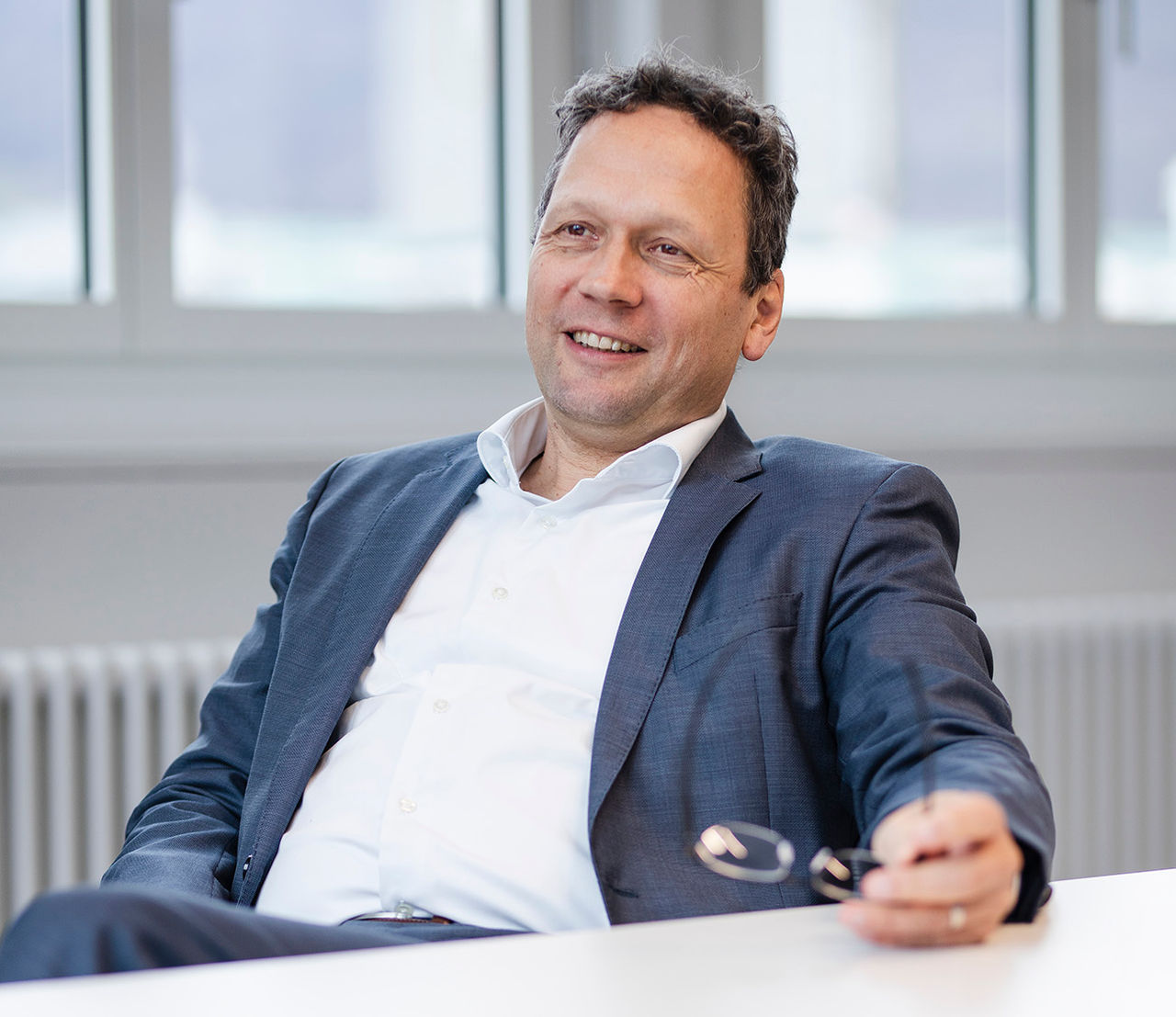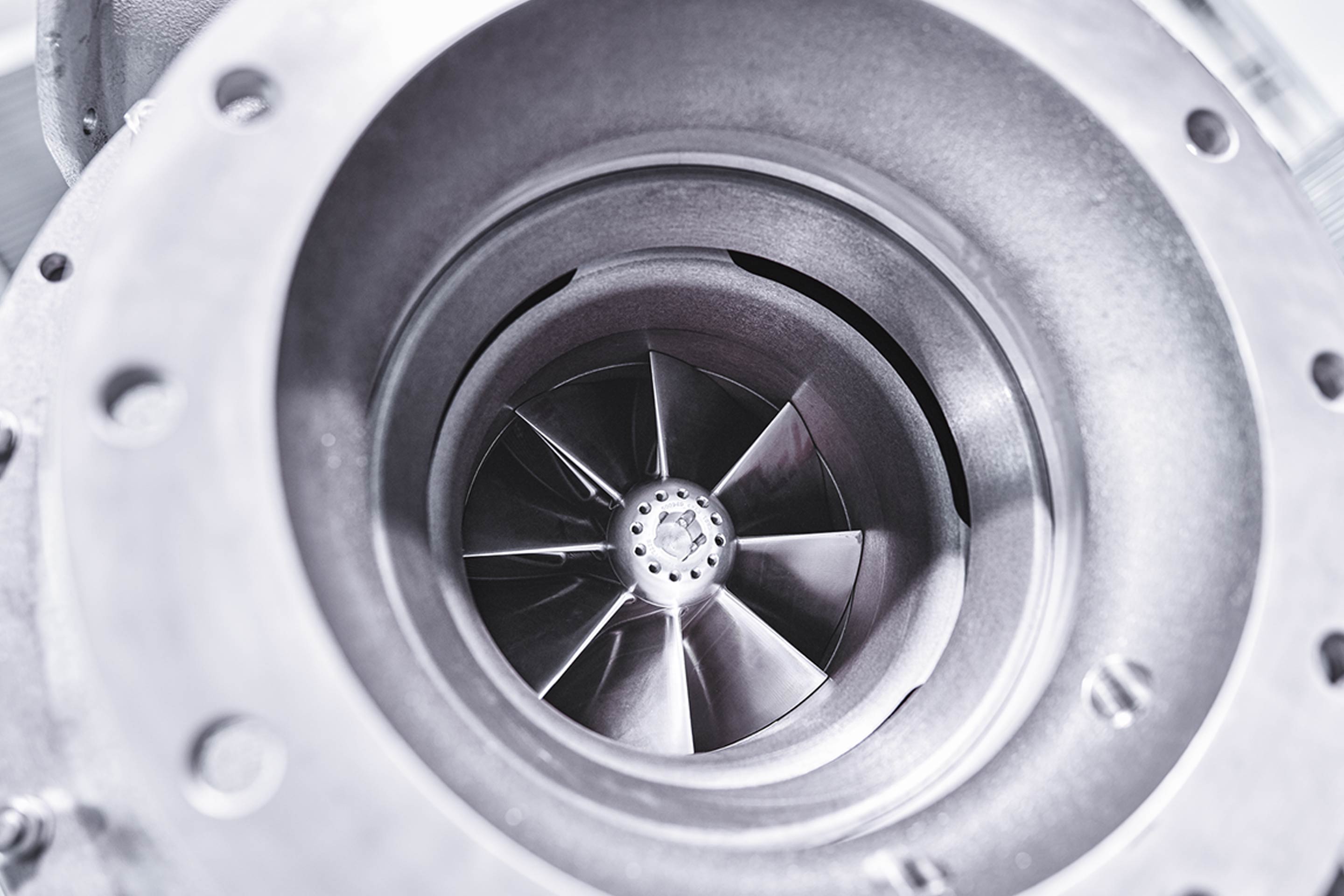In July, the International Maritime Organization (IMO) adopted new targets for the decarbonization of the shipping industry. Accelleron’s CTO, Dirk Bergmann, explains what this means for the industry.
“The IMO is the highest authority in global shipping: it’s a specialized agency of the United Nations. So, while other organizations may have already made announcements or set ambitious targets regarding zero emissions, the word of the IMO carries considerable weight globally. Each member state has an equally weighted vote, and decisions are only made through consensus,” says Dirk.
The revised IMO Greenhouse Gas (GHG) Strategy sets an accelerated target to reach net-zero GHG emissions from international shipping close to 2050. It also adds a commitment to ensure an uptake of zero and near-zero emission fuels by 2030. There are also indicative check-points for 2030 and 2040; these are mid-term decarbonization targets to ensure the industry is on track to meet the ambitions for 2050.
“For our industry, this is an important step forward. It means no-one can hide or stall regarding emissions. Previous announcements allowed some leeway for operators to leave it to others to take radical steps forward. Now, for the whole industry, it’s clear that everyone will have to move.”
“The industry has already turned a corner. To add some context, a few weeks ago at the CIMAC Congress in Busan, South Korea, we were able to see real-world performance measurements from large engines running on alternative fuels. What’s clear from CIMAC and the IMO is that the time for discussion has ended: we’re no longer asking ‘when’ or ‘why’. We’re now at the time for action, focusing on the ‘how’.”
“As a turbocharger manufacturer, we’re already working with engine makers to ensure that ship engines running alternative, net-zero emission fuels will be available.”
But while ship engines capable of running on zero-emission fuels might be available, the widespread availability of the fuels themselves remains in some doubt.
“The lack of investment in the infrastructure required to fuel international shipping is the largest roadblock we can see. But the IMO strategy announcement will help to drive that forward: now anyone considering investment in alternative fuel production will be able to see they’ll be able to get a return on that investment.”
“But the question also remains that, where fuel production is created, where will that fuel go to? Will it be sold to the global marine market, or used for domestic industry, mobility and heating? Every country has its own, local emissions reduction targets, and it’s clear that meeting those targets will be a priority. Our industry will need to co-ordinate its lobbying efforts with local and regional governments to establish fuel supplies. The good thing is that, with the demand created by the IMO targets, suppliers will certainly emerge.”

The new targets also create new priorities for ship owners.
“They need to look at their vessels. A very small proportion of ships will be able to be retrofitted to work with new fuels. And I know the engine manufacturers have some ideas on how that might happen. But really the priority needs to be on new orders: all new ship orders need to be capable of running on alternative fuels. Certainly, financing organizations are not going to fund the purchase of ships purely based on fossil fuels anymore.”
“The fortunate thing here is that we’re now mainly talking about two or three potential new fuels. Deep sea shipping is likely to rely on methanol, ammonia or e-methane. Ships for shorter journeys, like ferries, might use electricity or employ hydrogen directly. There is some scope for increasing the supply of biofuels. We’re likely to see a mix of fuels for some time: the conclusion from our GHG strategy group in CIMAC is that ‘there will be no silver bullet’ to provide a definitive solution to our zero-emissions fuel challenge.”
“So, there will be different fuel options for shipowners, and we need to use them to attain the targets. Accelleron is already working with engine manufacturers to supply them with turbochargers that can work with alternative fuels. The high efficiency of turbochargers tuned for these fuels will be necessary to help operators to reduce fuel costs. We have a very strong R&D team and, coupled with our unique test center in Baden, that is helping us move ahead swiftly. We can immediately support our engine OEM customers with the development of alternative fuel engines and they can rely on our strong global service network”
“The primary focus at present is on methanol, which has the advantage that its combustion behavior is quite close to diesel oil. There are differences but, in principle, the overall thermodynamic looks similar. A key area for adaptation is around fuel injection, which is one reason Accelleron is acquiring OMT, a specialist in the area. For ammonia and hydrogen, it will take a little longer to develop effective solutions, because their combustion characteristics are quite different to diesel, and indeed, to each other. Yet even so, they fall within our existing competence and expertise.”
“The recently announced cartridge concept of interchangeable parts for the ACCX300-L series was developed chiefly for service flexibility, but we also expect it to help shipowners to be able to make some adaptations for new fuels during the long life of a turbocharger. However, the main challenge for ship owners seeking to change fuels will be fuel tanks and fuel systems: they represent the main source of extra costs, as opposed to the engine.”
Read more about Dirk Bergmann’s vision of innovation at Accelleron.














